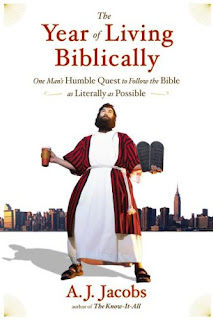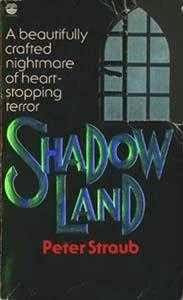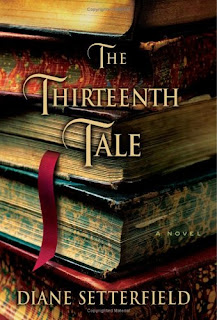Saturday, June 6, 2009
Commence reading!
Wednesday, June 3, 2009
wine suggestions for this month!
 So, I have to admit, I jumped the gun a little last night and drank my red wine selection for this month before actually posting it as an option. And I am so glad I did. In fact, I wish I was still drinking it now, even though it is only 10AM. So I have developed a relative obsession lately over Malbecs, which I believe to be experiencing a popular spell much akin to that of Pinot Noir after the movie "Sideways" but I'm totally cool with that. My go-to Malbec is made by Casillero del Diablo and I always (always) suggest it because, for $8 it cannot be beat. Quick side story, I saw it on the table in pictures of my friend Viv and was like, "you love Casillero del Diablo?" and she was all, "hell yeah I do!" Oook, anyways, so for this month's red wine suggestion I have to go with Francis Ford Coppola's Celestial Blue Label Malbec. At $14 it's a little pricier but worth the extra moolah. Here's what they're saying about it, "While working on a film in Argentina, Coppola discovered the allure of Malbec, which is a wine seldom bottled as a single-varietal in the U.S. Winemaker Corey Beck agreed that it would make for a wonderful addition to the Diamond Collection. Similar to Cabernet, Malbec exudes rich, dark fruits, currants, and cassis, but an inherent note of minerals and spice is what makes this wine distinctive and delicious." P.S. don't go to the website, it is about as cheesy as you might suspect (i.e. hot chicks looking as though they are in the throes of passion who happen to be holding unopened bottles of wine). It should be said that all marketing aside, this wine makes for a happy night. Also, we had this wine with pigs in a blanket which may not be the pinnacle of class but was really fun and tasty!
So, I have to admit, I jumped the gun a little last night and drank my red wine selection for this month before actually posting it as an option. And I am so glad I did. In fact, I wish I was still drinking it now, even though it is only 10AM. So I have developed a relative obsession lately over Malbecs, which I believe to be experiencing a popular spell much akin to that of Pinot Noir after the movie "Sideways" but I'm totally cool with that. My go-to Malbec is made by Casillero del Diablo and I always (always) suggest it because, for $8 it cannot be beat. Quick side story, I saw it on the table in pictures of my friend Viv and was like, "you love Casillero del Diablo?" and she was all, "hell yeah I do!" Oook, anyways, so for this month's red wine suggestion I have to go with Francis Ford Coppola's Celestial Blue Label Malbec. At $14 it's a little pricier but worth the extra moolah. Here's what they're saying about it, "While working on a film in Argentina, Coppola discovered the allure of Malbec, which is a wine seldom bottled as a single-varietal in the U.S. Winemaker Corey Beck agreed that it would make for a wonderful addition to the Diamond Collection. Similar to Cabernet, Malbec exudes rich, dark fruits, currants, and cassis, but an inherent note of minerals and spice is what makes this wine distinctive and delicious." P.S. don't go to the website, it is about as cheesy as you might suspect (i.e. hot chicks looking as though they are in the throes of passion who happen to be holding unopened bottles of wine). It should be said that all marketing aside, this wine makes for a happy night. Also, we had this wine with pigs in a blanket which may not be the pinnacle of class but was really fun and tasty! Moving along, I'm sad/ashamed to admit that I have not had a South African Chenin Blanc prior to this post. Chenin Blanc is one of two varietals (the other being Pinotage) that give South Africa it's name in the wine-world. I was talking to a clerk at our local wine store about this and apparently I have been missing out on something awesome this whole time. So for our second wine, I'm suggesting we go ahead and try Man Vintners 2008 Chenin Blanc. Here's what the vineyard is saying, "This wine has a unique delicious tangy character that goes well with a lot of food and makes for an excellent aperitif. In South Africa we say "moreish"; it is an excellent third date wine. It has lively aromas of tropical fruits and melon, with crisp, bold citrus and tropical fruit flavours. Serve chilled." While I am not exactly sure what the parameters for a "third date" wine are, I'm pretty sure I am up to try it. I've been craving asparagus lately so Dan & I are going to give this wine a try alongside asparagus spears wrapped with prosciutto (since it feels like 1000 degrees in our apartment I am welcoming the chilled wine & snack!).
Moving along, I'm sad/ashamed to admit that I have not had a South African Chenin Blanc prior to this post. Chenin Blanc is one of two varietals (the other being Pinotage) that give South Africa it's name in the wine-world. I was talking to a clerk at our local wine store about this and apparently I have been missing out on something awesome this whole time. So for our second wine, I'm suggesting we go ahead and try Man Vintners 2008 Chenin Blanc. Here's what the vineyard is saying, "This wine has a unique delicious tangy character that goes well with a lot of food and makes for an excellent aperitif. In South Africa we say "moreish"; it is an excellent third date wine. It has lively aromas of tropical fruits and melon, with crisp, bold citrus and tropical fruit flavours. Serve chilled." While I am not exactly sure what the parameters for a "third date" wine are, I'm pretty sure I am up to try it. I've been craving asparagus lately so Dan & I are going to give this wine a try alongside asparagus spears wrapped with prosciutto (since it feels like 1000 degrees in our apartment I am welcoming the chilled wine & snack!).Cheers! Let me know what you think!
Tuesday, June 2, 2009
still no book
Thursday, May 21, 2009
Just ordered my book...
Monday, May 18, 2009
Choose by Wednesday!

Subtitled: "One Man's Humble Quest to Follow the Bible as Literally as Possible," Jacobs, or A.J., as his two-year-old son calls him, does just that. It is likely that no one but A.J. Jacobs could have accomplished such a feat. After all, his last book, The Know-It-All, chronicles his reading of the entire Encyclopedia Brittanica, from A to Z. No one but a smart, witty, self-deprecating, nitpicky kinda guy would undertake two such daunting tasks, and complete them with grace, no pun intended.
Jacobs, a New York Jewish agnostic, decides to follow the laws and rules of the Bible, beginning with the Old Testament, for one year. (He actually adds some bonus days and makes it a 381-day year.) He starts by growing a beard and we are with him through every itchy moment. Jacobs is borderline OCD, at least as he describes himself; obsessing over possible dangers to his son, germs, literal interpretation of Bible verses, etc. He enlists the aid of counselors along the way; Jewish rabbis, Christians of every stripe, friends and neighbors. 
In an open-minded way he also visits with atheists, Evangelicals Concerned (a gay group), Jerry Falwell, snake handlers, Red Letter Christians--those who adhere to the red letters in the Bible, those words spoken by Jesus Himself, and even takes a trip to Israel and meets Samaritans. Through it all, he keeps a healthy skepticism, but continues to pray and is open to the flowering of real faith. Jacobs is a knowledge junky, to be sure. He enjoys the lore he picks up along the way as much as any other aspect of his experiment. One of the ongoing schticks is his meeting with the shatnez tester, Mr. Berkowitz. He is the one who determines whether or not your clothes are made of mixed fibers, in keeping with the Biblical injunction not to wear wool and linen together. The two become friends and prayer partners, in only one of the unexpected results of this year.
In the end, he says, "I'm now a reverent agnostic. Which isn't an oxymoron, I swear. I now believe that whether or not there's a God, there is such a thing as sacredness. Life is sacred." Not a bad outcome. --Valerie Ryan --This text refers to the Hardcover edition.
First setting: an all-male prep school in Arizona, where two sensitive freshmen form a bond based on their interest in magic tricks. Second setting: the labyrinthine house of a weird magician uncle in New England, where the two boys spend a memorable summer being trained in the art of illusion. Or is it real magic? Third setting: an alternate world where dark forces are at play--forces that first show up at the school, but intensify their power the summer. Shadowland is a superb, under-recognized, early novel from a master of literary terror.
Thursday, May 7, 2009
what next?
A wholly original work told in the vein of all the best gothic classics. Lovers of books about book lovers will be enthralled.
[It's] a gothic novel, and it doesn't pretend to be anything fancier. But this one grabs the reader with its damp, icy fingers and doesn't let go until the last shocking secret has been revealed.
A contemporary Gothic tale whose excesses and occasional implausibility can be forgiven for the thrill of the storytelling. Setterfield's debut is enchanting Goth for the 21st century.
like Jane [Eyre, Setterfield's heroine is] a real reader and makes a terrific narrator. That's where the comparisons end, but Setterfield, who lives in Yorkshire, offers graceful storytelling that has its own pleasures.
"The Thirteenth Tale" keeps us reading for its nimble cadences and atmospheric locales, as well as for its puzzles, the pieces of which, for the most part, fall into place just as we discover where the holes are. And yet, for all its successes -- and perhaps because of them -- on the whole the book feels unadventurous, content to rehash literary formulas rather than reimagine them.

Now, I love ghost stories. This MAY overpower any of the aforementioned "negatives." Does anyone else want to read this book? Should we keep looking? I know that many people are coming up on finals week and may not have time to read. I was thinking that this weekend could be the unofficial start of a new book; the official start being graduation.
My second first choice(heh) would be Love in a Time of Cholera. Let me know who's on board and your choice of book!

Saturday, May 2, 2009
done!
Sunday, April 26, 2009
sounds like...
I will say, at points I have a hard time believing that her parents were such intelligent, artistic, and resourceful nomads (example, the scene at the public zoo). Does anyone else have trouble buying her story? I suppose many of my older memories are romantisized. Another memoir was recently recommended to me; it's about growing up on an unsuccessful commune with parents who took acid all day, every day. I wonder if the stories would be similar?
I like her writing style...not to wordy or fluffy. She doesn't make herself out to be the hero or the martyr which was something that worried me going into the book. I loved the chapters about the Joshua tree, The Prospector, and all of the rocks and creatures she discovers as a 6-7 year old. Her recollections remind me of my own childhood wonderment in the woods behind my house.
Danielle just started reading. She says that she hopes the story becomes more plot driven and less like a list of events that make the point, "my parents are so crazy!" I completely argree. Does anyone else find themselves frustrated at the lack of plot/over arching conflict? Still, I've been thinking about the author and why she might have chosen to write this book; if you had such an incredible story, wouldn't you want someone else to hear it? After going through so much it probably just feels good to tell everyone, to make it real. I wonder if she feels horribly exposed or if she feels like an enormous weight has been lifted off of her shoulders. I just pray that we don't have another "A Child Called IT" situation on our hands and find out later that she grew up in a nice house in the burbs and that her dad died in a car crash when she was 4 or something. I would definitly feel duped.
Thoughts?
Saturday, April 25, 2009
To catch us up...
Thursday, April 16, 2009
Wine suggestions for this month!
Our first selection:

Woop Woop's Shiraz is a dry red wine from Australia, here are the stats according to the winery: "It’s deep in colour with great intensity, bursting with blackberry fruit juice, blueberry jam and masses of clean varietal Shiraz fruit. It’s well balanced with black liquorice, pepper and spice giving tremendous flavour and length. It weighs in at 15% alcohol! This wine was matured in French and American oak." This wine should retail at $12.00 a bottle. I've been waiting to try this one for months, I'm glad to have an excuse!
And the second:

Il Prosecco is a white sparkling wine, the tasting notes read: "Clear, almost watery pale with a glint of gold, this lightly sparkling non-vintage wine froths in the glass, but the bubbles dissipate quickly. Its pleasant, delicate peachy aroma invites a taste, and the flavor shows peaches as well, yeasty and crisp, bubbles tickling the tongue even if they're not evident in the glass." I found this sparkling wine for $11.00 a bottle so it should be around that price at your liquor store too. Try adding some fruit for a little extra flair--strawberries will of course work, but why not try blueberries or peaches for a new spin!
All the wines we try here will be available for $15.00 or less, and should be easy to find at any relatively well stocked liquor store. So if we try one--or both--on our own time (while reading this month's book!) and share our thoughts then after a few months we'll all have a better idea of what to bring out with us (or, really, stay home with)!
Tuesday, April 14, 2009
Winner!
With a fantastic storytelling knack... Walls doesn't pull her punches.
Walls's journalistic bare-bones style makes for a chilling, wrenching, incredible testimony of childhood neglect. A pull-yourself-up-by-the-bootstraps, thoroughly American story.
Shocking, sad, and occasionally bitter, this gracefully written account speaks candidly, yet with surprising affection, about parents and about the strength of family ties--for both good and ill.
The Glass Castle falls short of being art, but it's a very good memoir. At one point, describing her early literary tastes, Walls mentions that ''my favorite books all involved people dealing with hardships.'' And she has succeeded in doing what most writers set out to do -- to write the kind of book they themselves most want to read.
Monday, April 13, 2009
For the love of sharing...
Jeannette Walls's father always called her "Mountain Goat" and there's perhaps no more apt nickname for a girl who navigated a sheer and towering cliff of childhood both daily and stoically. In The Glass Castle, Walls chronicles her upbringing at the hands of eccentric, nomadic parents--Rose Mary, her frustrated-artist mother, and Rex, her brilliant, alcoholic father. To call the elder Walls's childrearing style laissez faire would be putting it mildly. As Rose Mary and Rex, motivated by whims and paranoia, uprooted their kids time and again, the youngsters (Walls, her brother and two sisters) were left largely to their own devices...
While delivering a message to her father, Florentino Ariza spots the barely pubescent Fermina Daza and immediately falls in love. What follows is the story of a passion that extends over 50 years, as Fermina is courted solely by letter, decisively rejects her suitor when he first speaks, and then joins the urbane Dr. Juvenal Urbino, much above her station, in a marriage initially loveless but ultimately remarkable in its strength. Florentino remains faithful in his fashion; paralleling the tale of the marriage is that of his numerous liaisons, all ultimately without the depth of love he again declares at Urbino's death. In substance and style not as fantastical, as mythologizing, as the previous works, this is a compelling exploration of the myths we make of love.
Christina Schwarz's suspenseful debut pivots on two of the lost "virtues" of the past: silence and stoicism. Drowning Ruth opens in 1919, on the heels of the influenza epidemic that followed the First World War. Although there were telephones and motor cars and dance halls in the small towns of Wisconsin in those years, the townspeople remained rigid and forbidding. As a young woman, Amanda Starkey, a Lutheran farmer's daughter, had been firmly discouraged from an inappropriate marriage with a neighboring Catholic boy. A few years later, as a nurse in Milwaukee, she is seduced by a dishonorable man. Her shame sends her into a nervous breakdown, and she returns to the family farm....
Former academic Setterfield pays tribute in her debut to Brontë and du Maurier heroines: a plain girl gets wrapped up in a dark, haunted ruin of a house, which guards family secrets that are not hers and that she must discover at her peril. Margaret Lea, a London bookseller's daughter, has written an obscure biography that suggests deep understanding of siblings. She is contacted by renowned aging author Vida Winter, who finally wishes to tell her own, long-hidden, life story. Margaret travels to Yorkshire, where she interviews the dying writer, walks the remains of her estate at Angelfield and tries to verify the old woman's tale of a governess, a ghost and more than one abandoned baby. With the aid of colorful Aurelius Love, Margaret puzzles out generations of Angelfield: destructive Uncle Charlie; his elusive sister, Isabelle; their unhappy parents; Isabelle's twin daughters, Adeline and Emmeline; and the children's caretakers. Contending with ghosts and with a (mostly) scary bunch of living people, Setterfield's sensible heroine is, like Jane Eyre, full of repressed feeling—and is unprepared for both heartache and romance. And like Jane, she's a real reader and makes a terrific narrator. That's where the comparisons end, but Setterfield, who lives in Yorkshire, offers graceful storytelling that has its own pleasures.
